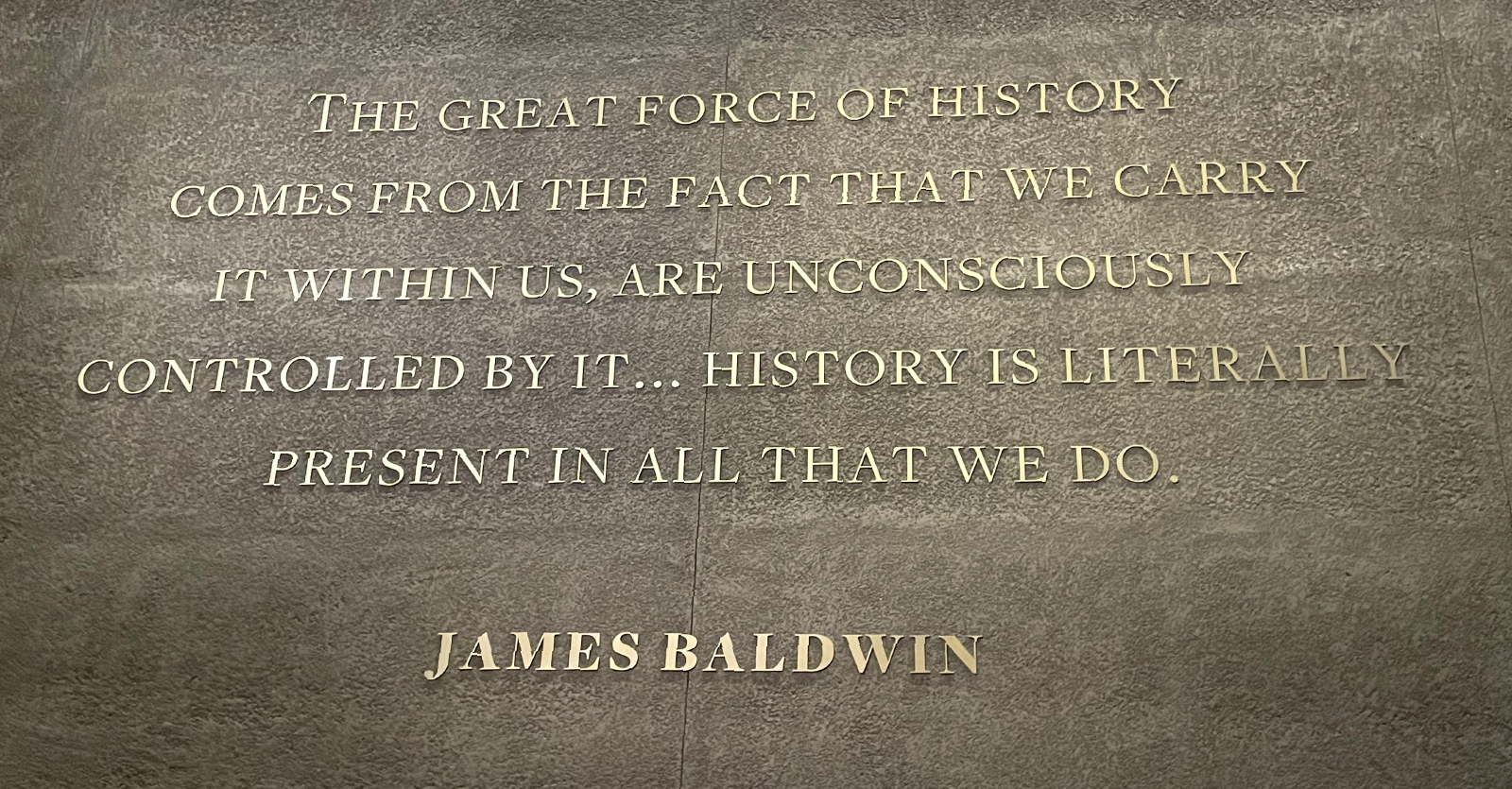Black History Month: Honoring & Celebrating the Past & Present
At FHLI, our mission is to advance collaborative, equity-centered, and community-driven solutions to improve overall health and well-being for every North Carolinian. Throughout Black History Month and year-round, we celebrate and uplift the voices, visions, lived experiences, and wisdom of Black individuals and communities across our state.
For the Black History Month 2024 theme, Celebrating African Americans and the Arts, we especially want to recognize the ways that Black artists and visionaries act as essential and driving forces for systems-level change.
National Rural Health Association Policy Institute & Visit to NMAAHC
Earlier this month, one of our programs, the North Carolina Rural Health Association, traveled to Washington, D.C., for the National Rural Health Association Policy Institute to help bring North Carolinian voices to Capitol Hill.
While in D.C., some of our staff visited the National Museum of African American History and Culture (NMAAHC). We reflected on Black History Month and the culture, heritage, struggle, and joy spanning centuries of the Black experience in the United States.
Here are a few highlights from the diverse NMAAHC exhibits we saw:
Black Arts
NMAAHC features displays about Black arts and the intersection of culture, activism, struggle, and joy through everything from music and dance to visual arts, architecture, food, and much more. One exhibition, “Spirit in the Dark,” spotlighted the role of religion in Black music, activism, and popular culture.
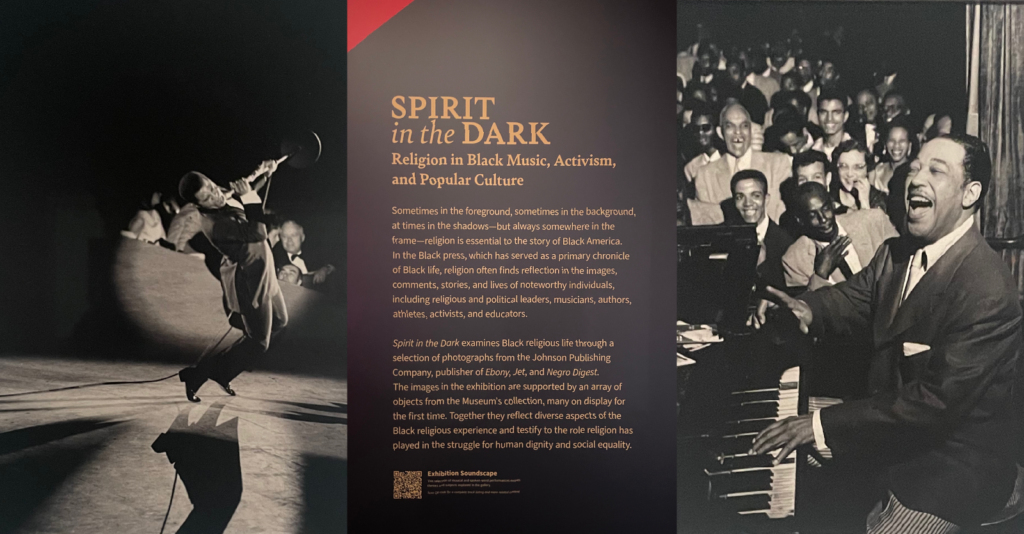
Black Leadership
While meeting with staff members in Representative Valerie Foushee’s office, we noticed a picture of Shirley Chisholm, the first Black woman to be elected to the United States Congress and the first Black woman to run for a major party nomination for the Presidency. Foushee is a current member of the Congressional Black Caucus, which was co-founded by Chisolm.
NMAAHC spotlighted Chisholm’s leadership, voice, and vision for a “government that would serve the needs of all its citizens.”
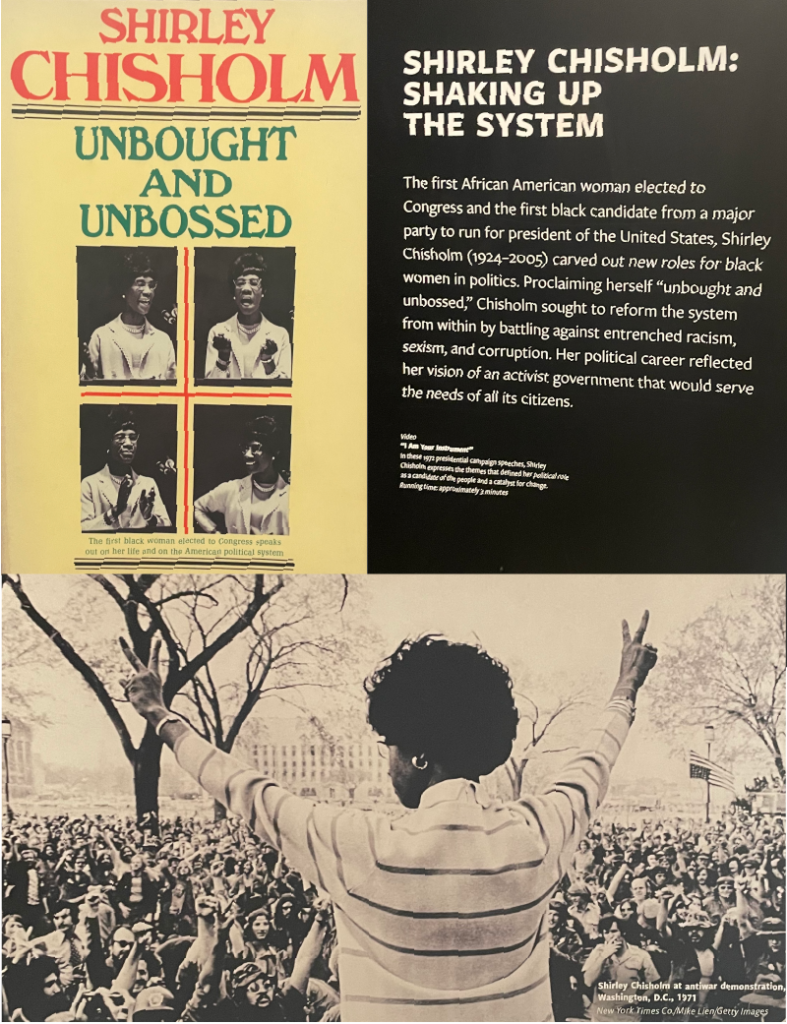
“I am not the candidate of Black America, although I am Black and proud. I am not the candidate of the woman’s movement of this country, although I am a woman and equally proud of that. I am the candidate of the people and my presence before you symbolizes a new era in American political history.” – Shirley Chisholm
Chisholm spoke about health and health care in her political life, saying that, “Health is a human right, not a privilege to be purchased.” She also spoke about the importance of community voices in decision making, saying, “If they don’t give you a seat at the table, bring a folding chair.”
Health & Health Care
“Of all the forms of inequality, injustice in health is the most shocking and the most inhuman,” is a Reverend Martin Luther King, Jr. quote often remembered without its second half: “…because it often results in physical death.” The second half is important, because it underscores the gravity and life-ending consequences of inequitable health care structures.
Several NMAAHC displays portray a long history of innovation, leadership, and activism to secure access to and equity in care. One leader, Homer G. Phillips, secured funding in the early 1900s to construct a new hospital for African Americans in St. Louis.
Phillips was a lawyer and civil rights activist who worked to oppose segregation, secure rights for Black people in public spaces like trains, and improve conditions for Black farmers. He was also a co-founder of the Citizen’s Liberty League, which worked to advance the interests of Black Americans in the Republican Party.
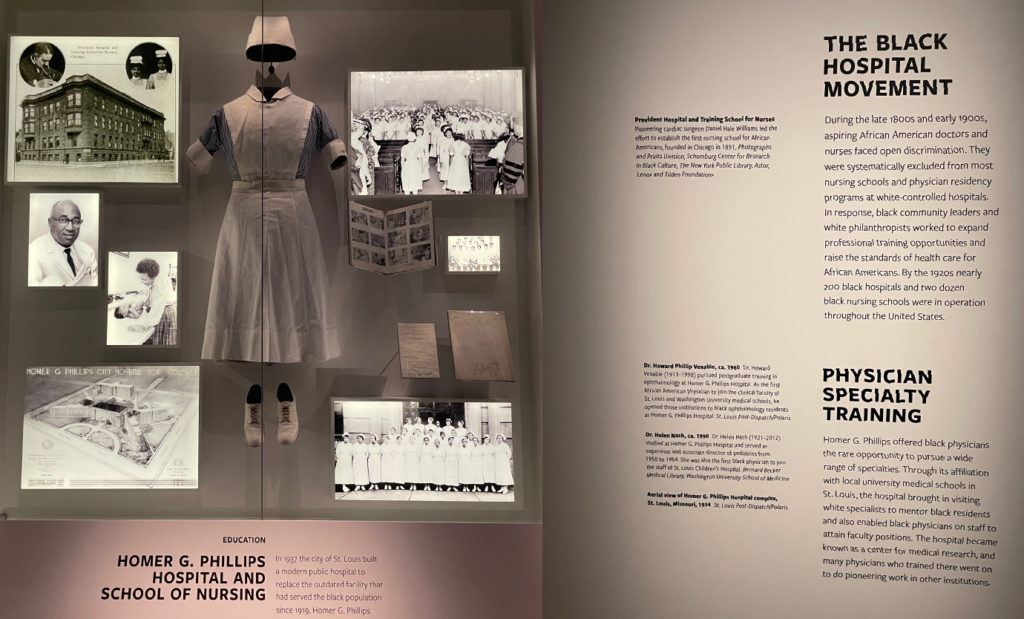
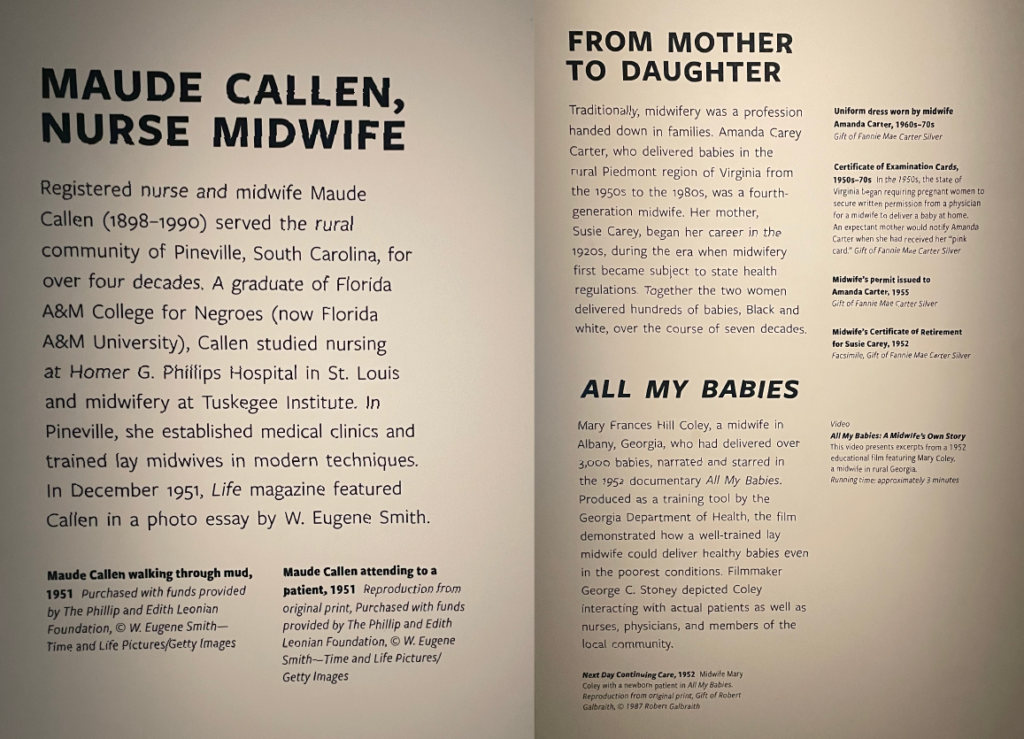
Influential writer and Civil Rights Activist James Baldwin said, “The great force of history comes from the fact that we carry it within us, are unconsciously controlled by it… history is literally present in all that we do.” The struggle, joy, and everything in between of the past constantly impacts us as individuals and a society in the present. While significant strides have been made, systemic inequity remains and the road to a just future continues.
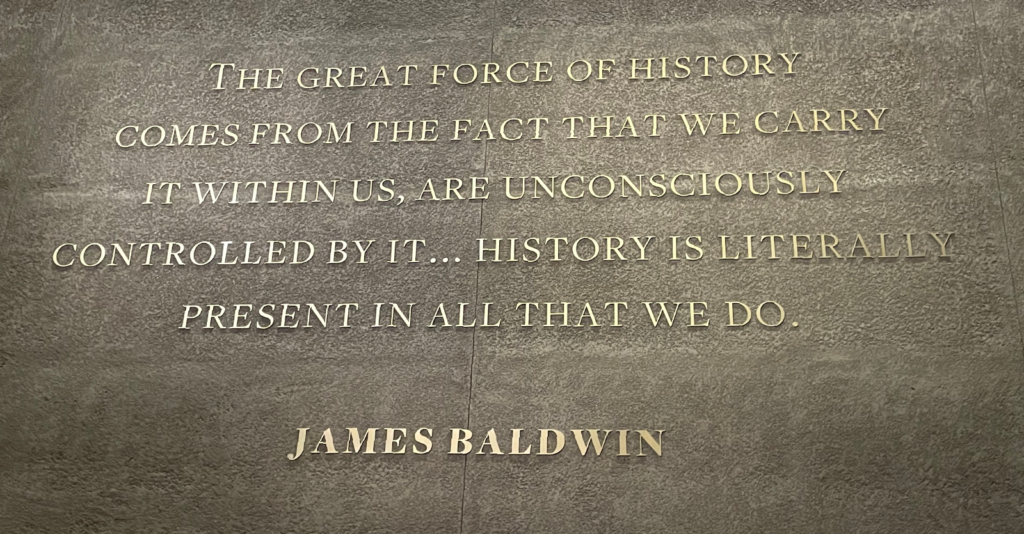
“History is not the past. It is the present. We carry our history with us. We are our history. If we pretend otherwise, we are literally criminals. I attest to this: the world is not white; it never was white, cannot be white. White is a metaphor for power, and that is simply a way of describing Chase Manhattan Bank.” ― James Baldwin, I Am Not Your Negro
As we wrapped up our time in D.C., we reflected on history being made today in communities across North Carolina working to improve access and equity in care. While on Capitol Hill we ran into Dr. Karen Smith, Hoke County Medical Director and lead Family Medicine Physician, who was named North Carolina’s “Community Star” in 2023.
Community Stars are named annually for each state by the National Organization of State Offices of Rural Health. FHLI helped recognize Dr. Smith during the 2023 National Rural Health Day Celebration for her leadership and contributions to improving health and well-being in her community.
On top of her role as a family physician, Dr. Smith actively advocates for policy change, embodying the multifaceted efforts to create a more equitable future for Black Americans, a theme emphasized throughout the NAAMHC exhibits.

